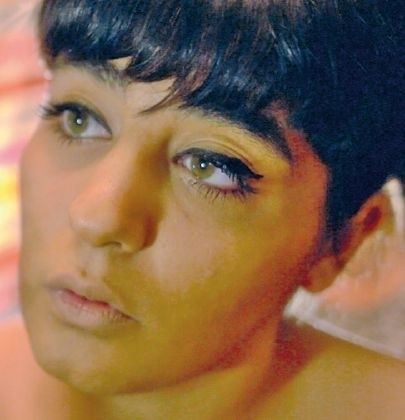Curiosity and desire to understand pushed the 26-year-old Syrian Haya al-Ali to get closer to the ISIS Women's Battalion in her hometown in the city of Raqqa. Ali was not convinced by what she had seen and what has become a daily reality in the city after its fall in the grip of ISIS, deciding to say "no" in her own way.
She wore a veil and hid a camera in her handbag, roaming the streets of her hometown, capturing images that toured the world and led her into exile in France, where she lives now, after receiving numerous death threats.
Ali's work intersected with that of the Syrian journalist working for the France 24 TV channel, Liana Saleh, who produced a documentary about Ali in cooperation with Claire Pieh entitled "the Rebel of Raqqa".
The documentary combines pictures taken by Ali in Raqqa with those taken by Saleh showing the daily life of Ali in Paris.
Ali now resides in a place known as the "House of Journalists", which is sponsored by a foundation dedicated to help journalists oppressed in their own countries. One of the impressive pieces of footage recorded by Ali films a demonstration calling for the overthrow of President Bashar al-Assad and the departure of ISIS. A little girl is among the participants in the demonstration after her father was arrested by ISIS a month prior, and has since not returned. The girl is crying and she can be seen saying she misses her father.
Another shot shows Ali dressed in a black veil covering her entire body, wandering the streets, where a taxi driver stops to tell her that her veil does not hide her features enough. She apologizes to him and thanks him for his note.
Further footage is taken in an internet cafe in Raqqa, showing a veiled girl talking in French to her family through Skype. She says that her return to France and exile in Paris are not possible.
Ali lives in a room overlooking a graveyard; a constant reminder of the dead who are still falling in her home country. Warmth arrives in her life when her friend, Mohammad – who left Syria for Germany – comes to visit her. Unlike the case of Ali, Muhammad seeks to cope with the exile. He is looking forward to a new life, despite the painful memories he lives with.
Ali seems unwilling, or maybe unable to adapt as her friend did. She is obsessed with an incentive to return to Syria at any moment, though she realizes the difficulty. Her family now resides in Turkey, and she has handed over her Syrian passport to the French directorate responsible for political refugees.
Ali reflects on the pages of the passport before giving it up, the last Syrian document in her possession – a token of her identity, her roots and origins.
France 24 will broadcast the documentary on Saturday. As the conflict in Syria enters its fifth year, and the number of displaced Syrians exceeds two million, each of them has a story about their homeland, the war and immigration. Each story raises grief and bitterness just like the stories of Haya and Mohammed.
Translated and edited by The Syrian Observer


